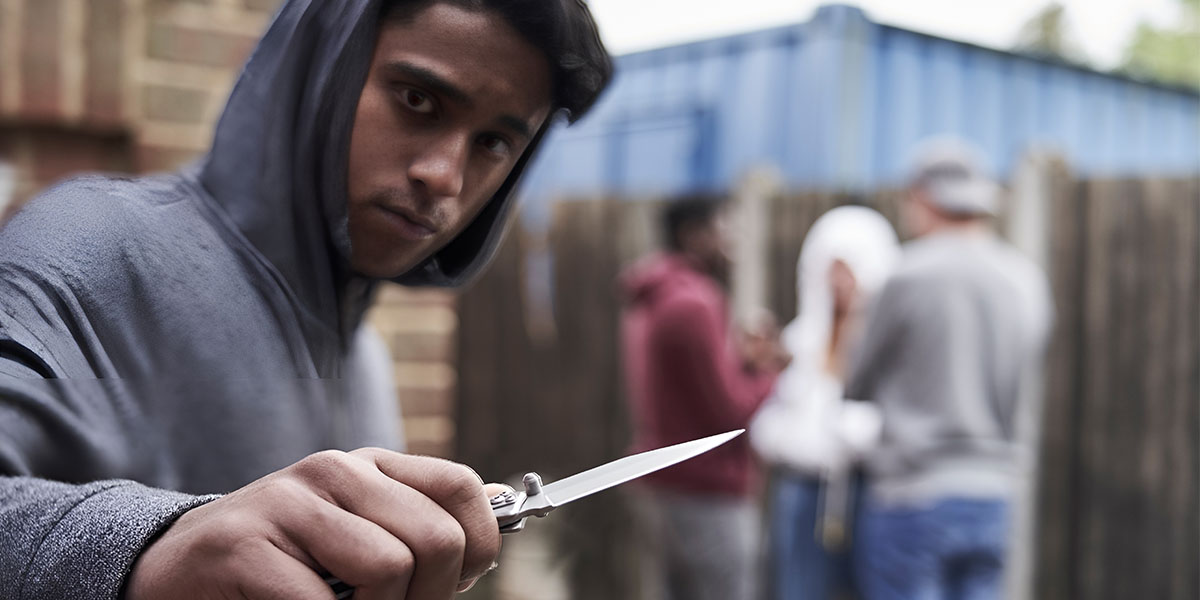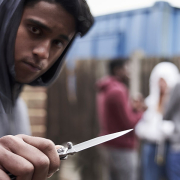The Murder of Lee Rigby: Extremism on a London Street (2013)

On 22 May 2013, a sunny afternoon in South-East London, an off-duty British soldier named Lee Rigby was walking near his barracks in Woolwich. In a shocking terrorist attack in broad daylight, two British men: Michael Adebolajo (29) and Michael Adebowale (22) targeted and killed Rigby in the middle of the street.
Both attackers were British-born, raised in Christian Nigerian immigrant families, who had converted to radical Islam in their youth. As Fusilier Rigby crossed the road, the two men rammed him with a car from behind, knocking him unconscious.
They then leapt out and butchered him with knives and a meat cleaver, attempting to behead him as onlookers watched in horror. The sheer barbarity of the murder taking place outside a primary school and local shops horrified the nation. But what came next was equally unnerving: the killers did not flee. Instead, hands soaked in blood, they forced bystanders to film them and justified their actions on camera.
In one passerby’s video, Adebolajo, holding a cleaver and with Rigby’s blood on his hands, delivered a fiery rant looking directly into the lens. Speaking with a London accent, he declared: “We swear by almighty Allah we will never stop fighting you. The only reason we have killed this man today is because Muslims are dying daily by British soldiers. This is an eye for an eye, a tooth for a tooth.”
He urged Britons to overthrow their government, accusing leaders of oppressing Muslims abroad. Startled pedestrians stood back, some shouting at the men, others praying or crying the attackers made no attempt to harm civilians, saying women and children were safe but soldiers were legitimate targets.
They waited 14 minutes for armed police to arrive, even engaging in conversation with an elderly lady who bravely tried to reason with them. When armed officers finally confronted them, Adebolajo charged at police with his cleaver and Adebowale aimed a rusty revolver hoping, it later emerged, to be martyred. Police shot and wounded both men and took them into custody.
The murder of Lee Rigby was the first Islamist terror killing on UK soil since 2005, and it prompted nationwide grief and anger. Rigby was a 25-year-old father of a toddler, a drummer in the Royal Fusiliers who had served in Afghanistan.
The public outpouring of support for his family was immense thousands of bouquets piled up at the Woolwich barracks gate. At the same time, the crime sparked a spike in anti-Muslim incidents and far-right protests, as well as strong denunciations from Muslim organizations.
The Muslim Council of Britain called the act “a barbaric crime that has no basis in Islam” and said the vast majority of British Muslims were “disgusted” by it. Then-Prime Minister David Cameron condemned the “sickening” attack and praised the courage of those who confronted the killers. He insisted Britain would stand resolute against extremist ideology.
Legal outcome: In December 2013, Adebolajo and Adebowale stood trial at the Old Bailey. They did not deny killing Rigby, but Adebolajo argued to the jury that it was not murder but a “war” claiming he was a “soldier of Allah” retaliating for Western wars in Muslim lands.
The court and indeed anyone watching the graphic video evidence had no difficulty rejecting this defence. The jury unanimously convicted both men of murder. At their sentencing in February 2014, a dramatic moment occurred: Adebolajo blew kisses to the public gallery and the pair scuffled violently with guards, shouting “Allahu Akbar” as the judge tried to deliver the sentence.
Once order was restored, the judge condemned their actions as a “betrayal of Islam” and devoid of any justification. Michael Adebolajo was given a whole-life term, meaning he will die in prison with no chance of release. Michael Adebowale, who was younger and somewhat less culpable, received life with a minimum of 45 years to serve. The court officially recorded that the murder was motivated by terrorism.
In a statement, Lee Rigby’s family said that while they were satisfied the killers will spend very long sentences behind bars, “no amount of justice can bring Lee back.” They described Lee a beloved son, husband, and father – as “our hero.”
The Rigby case led to some soul-searching within UK security services. It turned out MI5 had been aware of Adebolajo: he was on the periphery of investigations, had been arrested in Kenya in 2010 trying to join Al-Shabaab, interestingly and sent back to the UK.
MI5 had even reportedly approached him to inform, which he refused somewhat echoing Hashi’s story. However, he was not under active investigation at the time of the attack. An parliamentary inquiry later concluded that while the case was hard to foresee, there were missed opportunities to follow up on intelligence about Adebolajo’s extremist contacts.
The murder of Lee Rigby is seen as a grim warning that terrorism can take very primitive forms, knives and cars in the street and be carried out by self-radicalised locals, not just sophisticated bomb plots.
It forced an expansion of counter-terrorism to also address “lone actor” or small-cell attacks. Culturally, Rigby’s slaying and the images of Adebolajo’s bloodied diatribe remain seared in Britain’s memory.
Yet, the response also showed resilience: communities around Woolwich came together to reject division. A local Muslim leader summed it up: “We lost a brave soldier to madness that day. The killers wanted to divide us, but they failed.”
Britain’s determination to stand united in the face of such extremism was perhaps best captured by an ordinary Londoner who left a note at the scene: “This is London. We don’t care what religion you are. If you do good, we love you; if you do evil, we will bring you to justice.”




